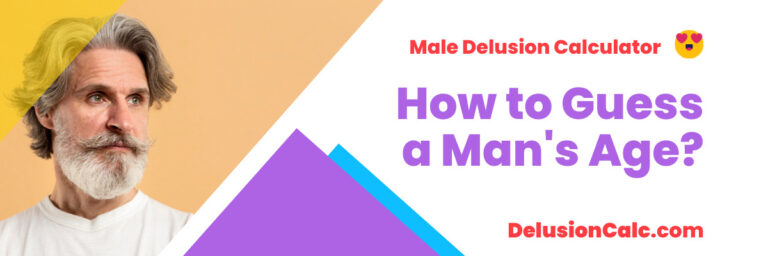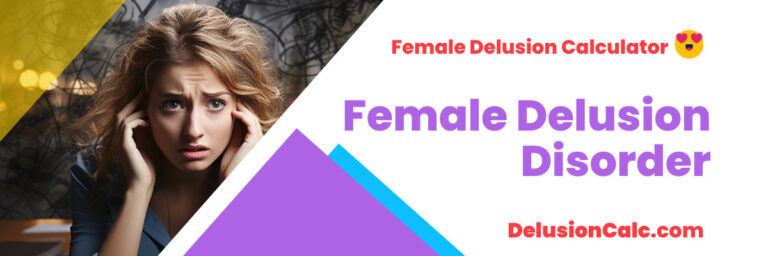7 Types of Delusions in Male & Female
Delve into the complex world of delusions, exploring the seven key types and their unique manifestations in both males and females.
This comprehensive guide offers a deep understanding of these psychological phenomena, their impact on mental health, and the gender differences that come into play.
Introduction
Understanding Delusions: A Brief Overview
Delusions are false beliefs held with absolute certainty, despite clear evidence to the contrary. They are common symptoms of various mental health disorders, including schizophrenia, bipolar disorder, and severe depression.
Delusions can significantly impact a person’s ability to function and interact with others.

The Role of Gender in Delusional Disorders
Gender plays a significant role in the manifestation of delusional disorders. Research shows that males and females may experience different types of delusions with varying degrees of intensity.
Understanding these gender differences is crucial for effective diagnosis and treatment.
You can Try Male delusion Calculator for Guys
Delusions: A Deeper Dive
What Are Delusions?
Delusions are firmly held beliefs that remain unchanged even in the face of contradictory evidence.
They are not just exaggerated beliefs or misinterpretations of experiences, but rather, they are a complete departure from reality.
The Psychology Behind Delusions
Delusions are thought to arise from faulty interpretations of events. They can be influenced by a person’s cultural background, personal experiences, and emotional state.
The exact cause of delusions is still unknown, but they are often associated with abnormal functioning in brain regions involved in belief formation.
Gender Differences in Delusions

Delusions in Males: An Overview
Males with delusional disorders often exhibit delusions of persecution and grandeur. They may believe others are targeting them or possess extraordinary abilities or achievements.
Delusions in Females: An Overview
Females, on the other hand, are more likely to experience delusions of jealousy and erotomania.
They may falsely believe their partner is unfaithful or that someone, often a person of higher status, is in love with them.
Comparative Analysis: Delusions in Males vs Females
While both genders can experience any delusion, the content and themes of the delusions can vary based on gender.
Societal expectations, gender roles, and individual experiences may influence this difference.
Check out our Female Delusion Calculator App
7 Types of Delusions
Delusion of Persecution
This is the belief that one is being targeted, watched, or persecuted by others.
Manifestation in Males
Males may believe they are being conspired against or targeted for harm.
Manifestation in Females
Females may believe they are being stalked or their loved ones are in danger.
Delusion of Grandeur
This involves beliefs of inflated worth, power, knowledge, or identity.
Manifestation in Males
Males may believe they have extraordinary abilities or are famous figures.
Manifestation in Females
Females may believe they have a special mission or are related to a deity.
Delusion of Control
This is the belief that external forces control one’s thoughts, feelings, or actions.
Manifestation in Males
Males may believe their actions are being controlled by technology or supernatural forces.
Manifestation in Females
Females may believe their thoughts are being read or broadcasted.
Delusion of Guilt or Sin
This involves the belief that one has committed a terrible crime or sin.
Manifestation in Males
Males may believe they are responsible for disasters or tragedies.
Manifestation in Females
Females may believe they have committed a mortal sin or caused harm to others.
Delusion of Reference
This is the belief that common elements in the environment are directed at oneself.
Manifestation in Males
Males may believe that songs, news reports, or other media are specifically about them.
Manifestation in Females
Females may believe that random events or comments from others have special personal significance.
Somatic Delusions
These are delusions involving bodily functions or sensations.
Manifestation in Males
Males may believe they have severe disease or their body changes unusually.
Manifestation in Females
Females may believe they are pregnant or their body is emitting a foul odour.
Erotomanic Delusions
This involves believing that someone, often a stranger or high-status individual, is in love with oneself.
Manifestation in Males
Males may believe a celebrity or someone unattainable is in love with them.
Manifestation in Females
Females may believe a coworker or acquaintance is secretly expressing their love.
Impact of Delusions on Mental Health

The Consequences of Delusions: A Gender Perspective
Delusions can lead to significant distress and impairment, affecting one’s work, relationships, and overall quality of life.
The impact can vary based on the type of delusion and the individual’s gender.
Mental Health Resources for Dealing with Delusions
Treatment for delusions often involves a combination of medication and psychotherapy. Support groups and educational resources can also be beneficial.
Conclusion
Key Takeaways
Understanding the seven types of delusions and their unique manifestations in males and females can enhance our approach to mental health care.
By acknowledging these differences, we can provide more personalized and effective treatments.
Final Thoughts on Delusions in Males and Females
Delusions, while complex and often misunderstood, are a crucial aspect of mental health that deserves our attention.
By continuing to explore these phenomena, we can pave the way for better understanding and care.
Frequently Asked Questions
What are the most common types of delusions in males and females?
In males, the most common types are delusions of persecution and grandeur. In females, delusions of jealousy and erotomania are more common.
How do delusions impact the mental health of males and females differently?
The impact of delusions on mental health can vary based on the type of delusion and the individual’s gender.
For instance, delusions of persecution can lead to fear and paranoia, while delusions of grandeur can result in risky behaviours.
Are there any specific treatments for delusions in males and females?
Treatment for delusions typically involves a combination of medication and psychotherapy.
The approach can be tailored based on the individual’s needs and the type of delusion.
How can one support a loved one suffering from delusions?
Support can include encouraging the individual to seek professional help, providing emotional support, and educating oneself about delusions.
Can delusions be prevented?
While there’s no surefire way to prevent delusions, early intervention and treatment can help manage symptoms and improve quality of life.
What are some resources for individuals suffering from delusions?
Resources can include mental health professionals, local support groups, and online educational resources.







